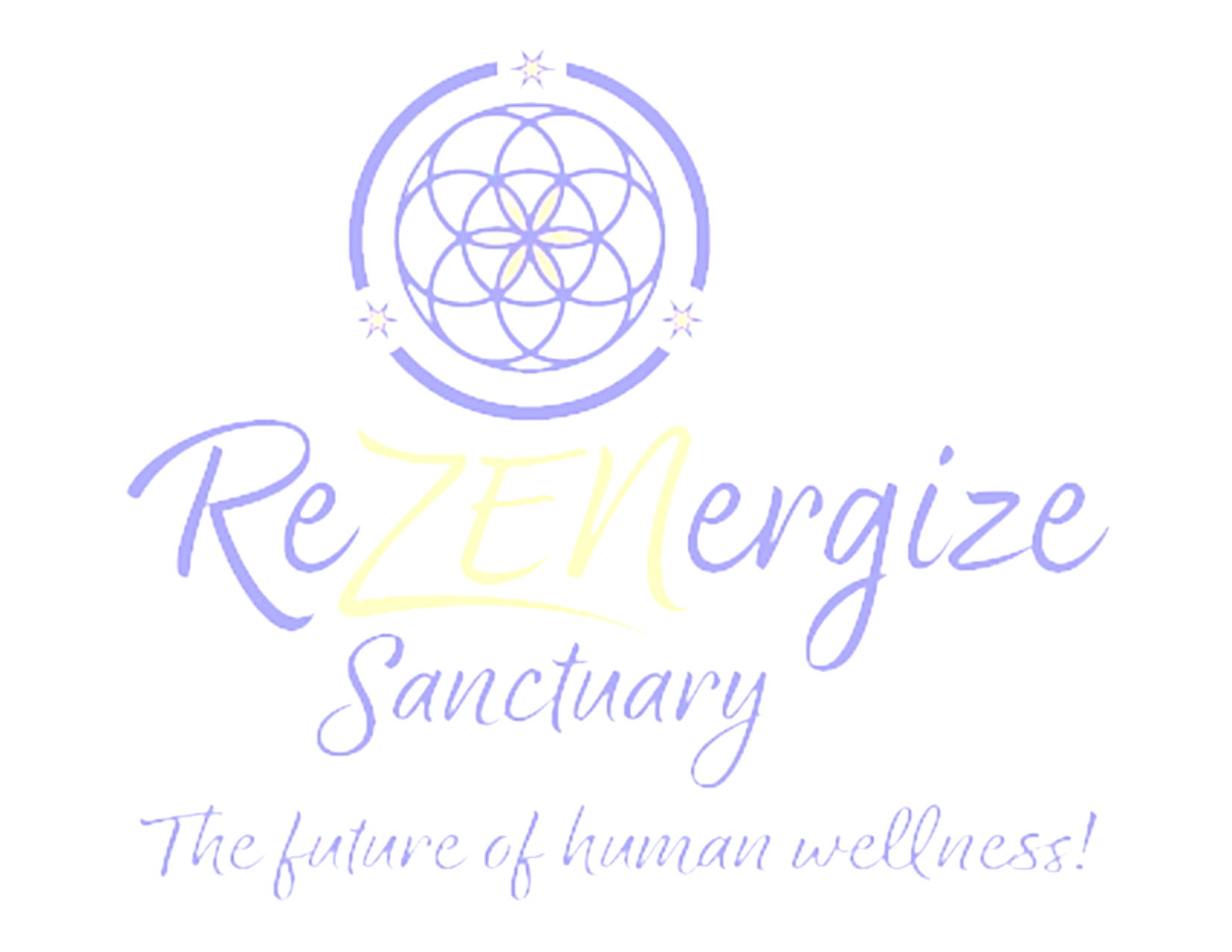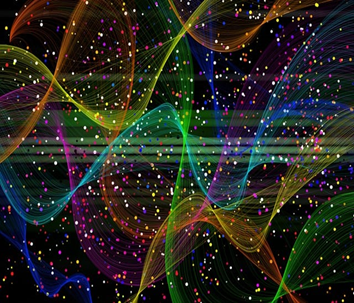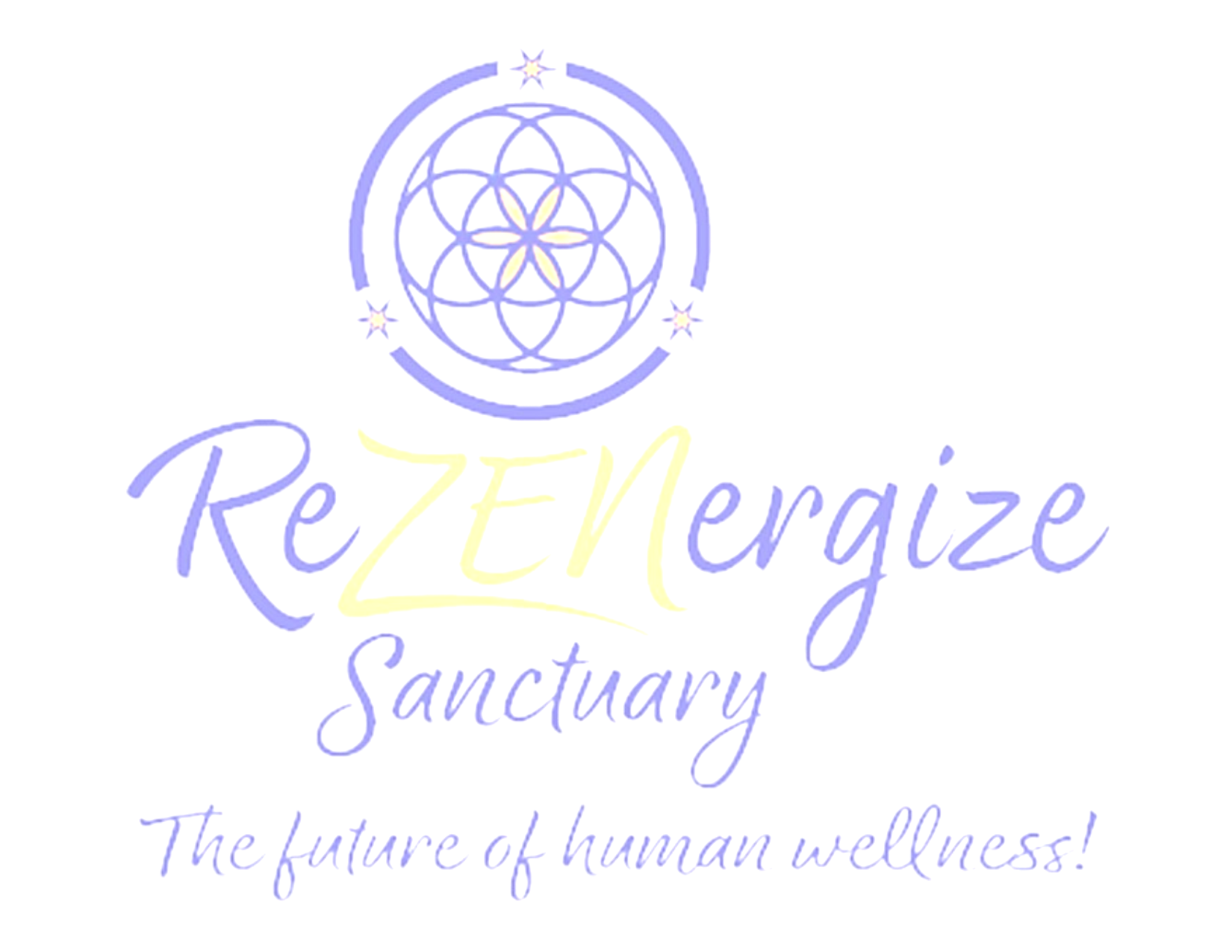ReZenergize Sanctuary
Knowledge Center
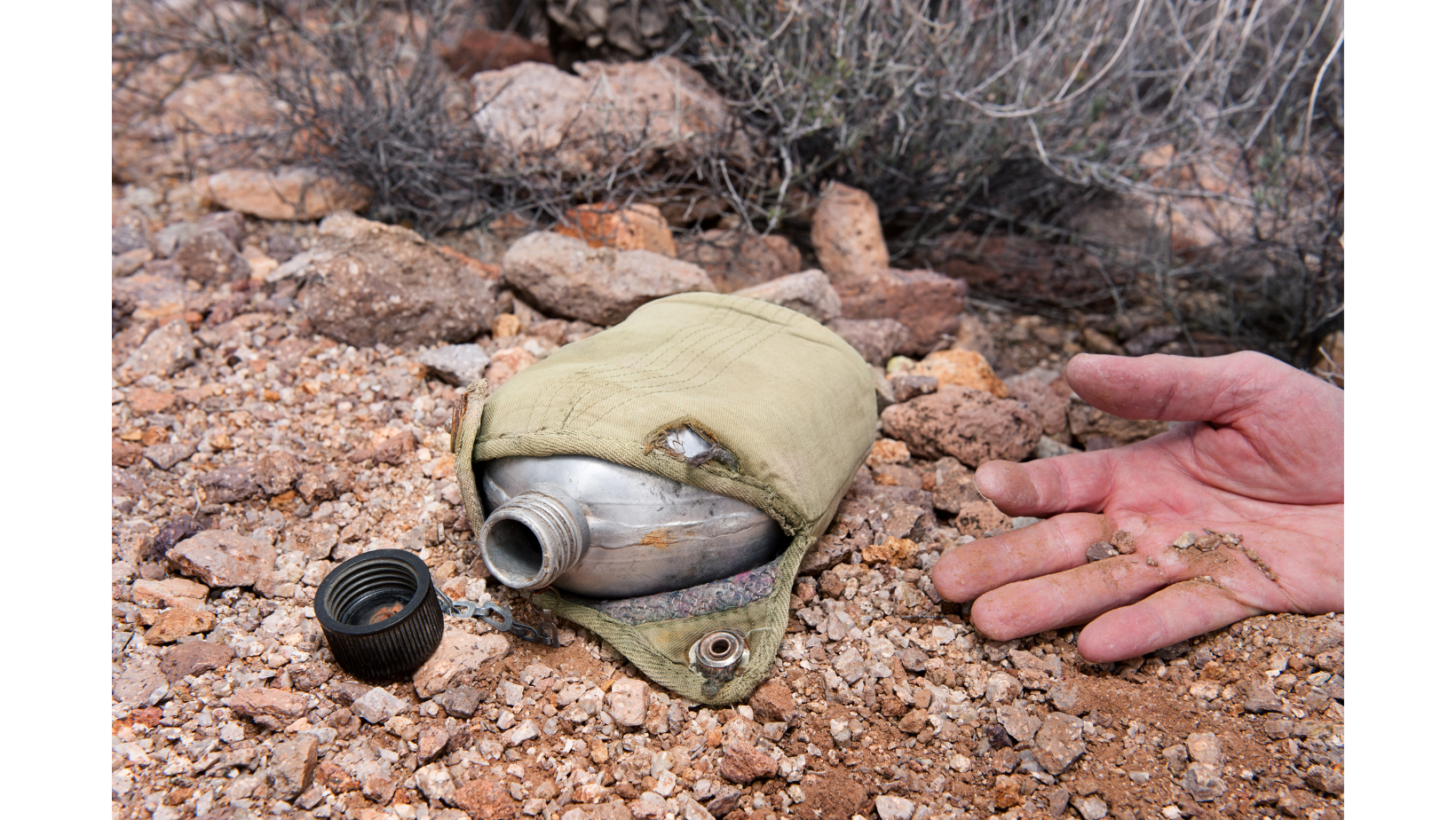
Water is not just the magic elixir of life, it’s absolutely essential for the proper functioning of our bodies. Unfortunately, many of us underestimate the significance of staying adequately hydrated and becoming dehydrated. While you can live for up to 3 weeks in some cases, without food, you can only live for about 3 days without water. Dehydration occurs when our bodies lose more fluids than we take in, leading to an imbalance that can adversely affect our health. So let’s talk about dehydration, its causes, signs, and most importantly, its impact on our overall well-being. Maybe if you understand the importance of hydration, you will take proactive steps to maintain your bodies’ fluid balance and safeguard your health. I know I really changed my attention to it after we started this journey with the EESystem and started focusing more clearly on what goes into my body. Every single system in your body operates better with plenty of water. Imagine for a moment the tires on your car all went flat. Most people wouldn’t dream of even trying to drive their cars any distance without getting the tires reinflated first. Not only would you not get anywhere quickly but it would likely damage your car in numerous ways if you continued to do it regularly. Same with your body. Now consider that every single molecule of anything that gets into your body must have a pathway out unless it is a nutrient that becomes part of your body. There are only so many ways back out of the body. Sweat, needs water, poo, needs water, breath, releases water vapor, pee, obviously water, and tears, all water. If you are dehydrated then none of the exit strategies for waste are viable escape routes for stuff that needs to get out. So basically, if you are dehydrated you really are full of sh*t, trash, waste, rubbish, toxins, etc. that can’t find a way out!! The Causes and Signs of Dehydration Dehydration can result from various factors, including inadequate fluid intake, excessive sweating, physical activity, illness, and certain medications, especially pain meds. There are also environmental factors that should be taken into account such as heat, humidity & altitude. Sometimes, you may not even realize you’re becoming dehydrated. Think about the last time you traveled. Was it by plane or car? Many people may attempt to limit how much they drink when driving in order to avoid making too many ‘pit’ stops. When traveling by air, the relative humidity in an aircraft is much lower than most people realize or are used to. It’s important to hydrate well before AND after trips to help reduce the risk of this type of dehydration. Understanding the causes is crucial in identifying the signs of dehydration. 5 common signs of dehydration include: increased thirst dry mouth Fatigue dizziness dark-colored urine Truthfully, some experts say, once you are thirsty you are already significantly dehydrated!! It reminds me of what my dad used to say about my car. “If the “idiot” light comes on it might already be too late! Signs of severe dehydration can manifest as: dehydration headaches muscle cramps dry skin rapid heartbeat. Recognizing these signs can help us take prompt action to rehydrate and prevent further complications. The Impact of Dehydration on Physical Health Proper hydration is essential for optimal physical health. When we don’t consume enough water, our bodies struggle to carry out vital functions including our ability to get quality sleep. Decrease in Blood Volume Dehydration can lead to a decrease in blood volume, affecting blood pressure regulation and reducing blood flow to organs and tissues. Consequently, this can impair organ function, potentially leading to serious complications such as kidney stones, urinary tract infections, and constipation. Furthermore, dehydration can negatively impact our cardiovascular system. The heart has to work harder to pump blood when there is a reduced blood volume, potentially increasing the risk of cardiovascular problems. I always say, it’s easier to move blood, not mud! So drink more water! Thermoregulation Dehydration can also impede thermoregulation, making it harder for our bodies to cool down in hot weather, which may result in heat exhaustion or heatstroke. Some folks think drinking sodas, beer, teas, juices, and other beverages means they are hydrated, but that’s a bit of a mistake. It is much harder for the body to use those drinks because they have to be processed by several organs first! All those other beverages have to be filtered, cleansed and then absorbed into the bloodstream. But water? The body can use that right away! The Impact of Dehydration on Mental and Cognitive Health While the physical effects of dehydration are significant, its impact on mental and cognitive health should not be underestimated. Research has shown that even mild dehydration can affect mood, cognitive function, and overall brain performance. Studies indicate that dehydration can impair short-term memory, attention, and psychomotor skills. It can also lead to increased feelings of anxiety, confusion, and fatigue. One thing I have noticed, when my body is detoxing and I haven’t had a detox bath in a while, I have gotten more out of sorts and even a bit emotional. Water helps whether you are drinking it or bathing in it! Dehydration can further exacerbate existing mental health conditions, such as depression and anxiety disorders. Additionally, adequate hydration is crucial for the proper functioning of the brain and the production of neurotransmitters, which play a vital role in regulating our mood and emotions. Thus, maintaining proper hydration levels is crucial for preserving optimal mental well-being. Tips for Staying Hydrated Now that we understand the importance of hydration, let’s explore some practical tips to help us stay properly hydrated: Drink water regularly: Aim for at least eight glasses of water per day as a minimum, Some experts recommend ½ oz for every lb of body weight per day. Increase intake during hot weather, increased sun exposure and physical activity. Eat water-rich foods: Include fruits and vegetables with high water content, such as watermelon, cucumbers, and citrus fruits, in your diet. The good news is that you will increase your nutrient intake while getting your water needs met! Limit alcohol and caffeinated beverages: These can contribute to dehydration, so consume them in moderation and balance them with water. Set reminders: Use phone apps or alarms to remind yourself to drink water at regular intervals. Carry a water bottle: Keep a reusable water bottle with you wherever you go to make hydration convenient and accessible. Monitor urine color: One of the best measures of hydration is pale yellow or almost clear urine. Darker colors suggest the need for more fluids. In most cases clear urine is a sign that you are well hydrated but be careful you are not overhydrated, though it is rare. Dehydration is a condition that should not be taken lightly, as it can have significant consequences for our health. By recognizing the causes and signs of dehydration, understanding its impact on physical and mental well-being, we can adopt proactive hydration habits. We can also ensure that our bodies receive the water they need to function optimally. Remember, staying hydrated is not just a choice; it’s a vital aspect of maintaining a healthy and thriving life. While the EES helps recharge your body, the crystalline structures inside the cells that hold and conduct the electricity your body needs to operate, require water to maintain the charge. So drink up when you come for your scalar session!

In our ever-evolving quest for holistic healing and wellness, new frontiers of energy medicine continue to captivate and intrigue us. Scalar energy, while a relatively new concept in the field of health and wellness, has been known since first discovered by Nikola Telsa in the 1890’s. More recently scalar energy has emerged as a fascinating topic of exploration in the field of health and wellness. As founder of the diathermy , Tesla already has pointed to the biological effectiveness and to the possible use in medicine This enigmatic form of energy holds immense potential for promoting healing and well-being. This offers a fresh perspective on our understanding of the human body and its interaction with the energetic realm. We will delve into the world of scalar energy, uncover its principles, and explore its promising implications for healing. Understanding Scalar Energy To comprehend the significance of scalar energy or scalar waves, also known as Tesla Waves, we must first grasp its fundamental nature. Scalar energy, also known as zero-point energy or subtle energy, is a type of energy that exists beyond electromagnetic fields. Unlike electromagnetic energy or waves, which have both amplitude and direction, scalar energy possesses only magnitude . It flows in a non-linear, non-Hertzian manner and can be found throughout the universe. Scalar energy operates at the quantum level, encompassing a vast range of frequencies and vibrations. It is considered a fundamental force that permeates all living and non-living things. While invisible to the naked eye, scalar energy is not bound by the limitations of time and space, allowing it to penetrate physical matter effortlessly. The Science Behind Scalar Energy Healing Scalar energy healing is rooted in the principles of quantum physics and the understanding that everything in the universe is composed of energy. “If quantum mechanics hasn’t profoundly shocked you, you haven’t understood it yet. Everything we call real is made of things that cannot be regarded as real.” – Niels Bohr This healing modality harnesses the transformative power of scalar energy to rebalance and optimize the body’s energetic systems, facilitating the restoration of health and well-being. Basically, when the body’s energetic systems are optimized – it heals itself! The body is designed (we think by intelligent design of a genius higher power) to continuously regenerate, repair and restore itself. 1. Restoring Energetic Balance Scalar energy healing aims to correct energetic imbalances within the body. These imbalances may arise from stress, trauma, (we will go into more detail regarding trauma and recovery in another article) environmental factors, or other causes. By introducing scalar energy into the system, the body’s natural healing mechanisms are activated, promoting a return to equilibrium and supporting overall well-being. 2. Detoxification and Cellular Regeneration Scalar energy healing is believed to facilitate detoxification at the cellular level. The gentle yet powerful energy vibrations can help dislodge and eliminate toxins, enhancing cellular function and promoting regeneration. Hydration, with clean, alkaline, 8.5 or higher PH water is a powerful partner in this process. This process can lead to increased vitality, improved organ function, and enhanced overall health. Of course every person is unique and the body will prioritize repair and restoration as it sees fit, even if we have a different idea of what we wish to be improved first! 3. Harmonizing the Biofield The biofield, an energetic matrix that surrounds and interconnects the physical body, plays a crucial role in our health and vitality. Scalar energy healing is thought to harmonize and optimize the biofield, ensuring smooth energy flow and communication within the body. By addressing disruptions or blockages in the biofield, scalar energy can help alleviate physical, emotional, and mental imbalances. This was the first most profound shift I experienced on my very first visit to an EE System. I felt more calm and peaceful afterwards Scalar Energy Devices and Applications Scalar energy has given rise to a variety of innovative devices and technologies designed to harness its potential for healing. While the scientific community is still exploring the full range of scalar energy applications, several devices like the Energy Enhancement System have gained popularity in the field of energy medicine. 1. Scalar Energy Pendants and Jewelry Our scalar energy medallions and jewelry are infused by Dr. Sandra Micahels’ with scalar energy, through a proprietary hyper-charge system allowing individuals to carry the healing vibrations with them throughout the day. These accessories are believed to support overall well-being, enhance energy levels, and provide protection against electromagnetic radiation. There are numerous testimonials from people who only had the benefit of the Hyper-Charged EE medallions or bracelets, because they couldn’t get to a EES center, and have reported significant results. 2. Scalar Energy Systems Specialized scalar energy-generating technology, such as the Energy Enhancement System and Spooky2, have become increasingly popular. Our personal experience is exclusively with the EES. . Our 24-unit Energy Enhancement System consists of 4 towers with 6 computers and 6 screens in each stack. The 4 stacks of computers/screens produce scalar and bio-photonic waves. These devices emit scalar energy waves, and are believed to promote relaxation, stress reduction, improved sleep, and overall rejuvenation. They are often used in wellness centers like ReZENergize Sanctuary , spas, and private homes. 3. Scalar Energy Water Devices Scalar energy water devices are designed to infuse water with scalar energy, optimizing its energetic properties. It is believed that consuming scalar energy-infused water can support hydration, promote cellular vitality, and enhance overall well-being. Scalar energy holds tremendous promise in the field of healing and wellness. Its unique properties and applications offer a fresh perspective on energy medicine, providing new avenues for restoring balance and promoting well-being. By understanding scalar energy’s fundamental principles and exploring its scientific foundations, we can better appreciate its potential in supporting our physical, emotional, and energetic health. As the scientific community continues to unravel the mysteries of scalar energy, it is essential to consult reputable sources and stay informed about the latest research and developments. By integrating scalar energy concepts into our holistic approach to healing, we can embark on a transformative journey towards optimal well-being.

Nikola Tesla was the first to discover the existence of scalar waves. His work is the foundation that the EES is built on. He was truly a genius ahead of his time in so many respects. Tesla said, “The most important element in my scheme of life is my diet. You cannot expect a machine to function well if you do not provide it with the proper fuel.” “It is no secret, but common sense. I look upon the human body as a machine, and I treat it with the respect which a machine deserves. I keep it properly oiled and properly cleaned, and I see to it that it has no opportunity to gather rust.” -Nikola Tesla In her class Dr. Michael talked quite a bit about the importance of nutrition. “Stop eating Barcode foods!” she said. No matter how much good the EES can do to support your body, it can’t do it all. It’s important to make sure you are getting enough clean, living food. Dr. Michael also suggested putting a medallion on or in your refrigerator. The same way it helps your body, it can help improve your food. It’s also one of the best ways to make good use of any medallions that you might have broken. Put the broken pieces in the corners of your fridge! “Being a scientist, I attempt to regulate the machine which I call my body according to the laws of the planet on which I live. Whatever scheme of life man adopts, it must conform to the physical condition created by the rotation of the globe. The physical law which divides twenty-four hours into day and night also divides man’s life into two periods — one in which he lives and another in which he rests.” “This in itself seems to indicate the desirability of two meals a day in unison with the world rhythm — one meal to give us energy for the day’s work, another to supply the body with the material with which it will replenish itself during sleep.” – Nikola Tesla I find it challenging to get proper nutrition in my daily diet. I do my best to fast and make healthy green shakes, but our soil is depleted and the food we do get is far less nutrient rich than it was 50 years ago. “According to the USDA, fruits and vegetables were packed with far more nutrients back then than they are now. Experts attribute the nutritional drop to hybrid breeding of crops, designed more for size and color and ability to survive transport, than nutritional value.” – Natural Foods Merchandiser You can read more about declining nutrient levels here : It is the very reason all of us here at the Sanctuary all take Juice Plus+ . Adding Juice Plus gives me peace of mind knowing I am providing my body what it needs to thrive. It is whole food nutrition, not a supplement. It has helped us and thousands of others improve their health.
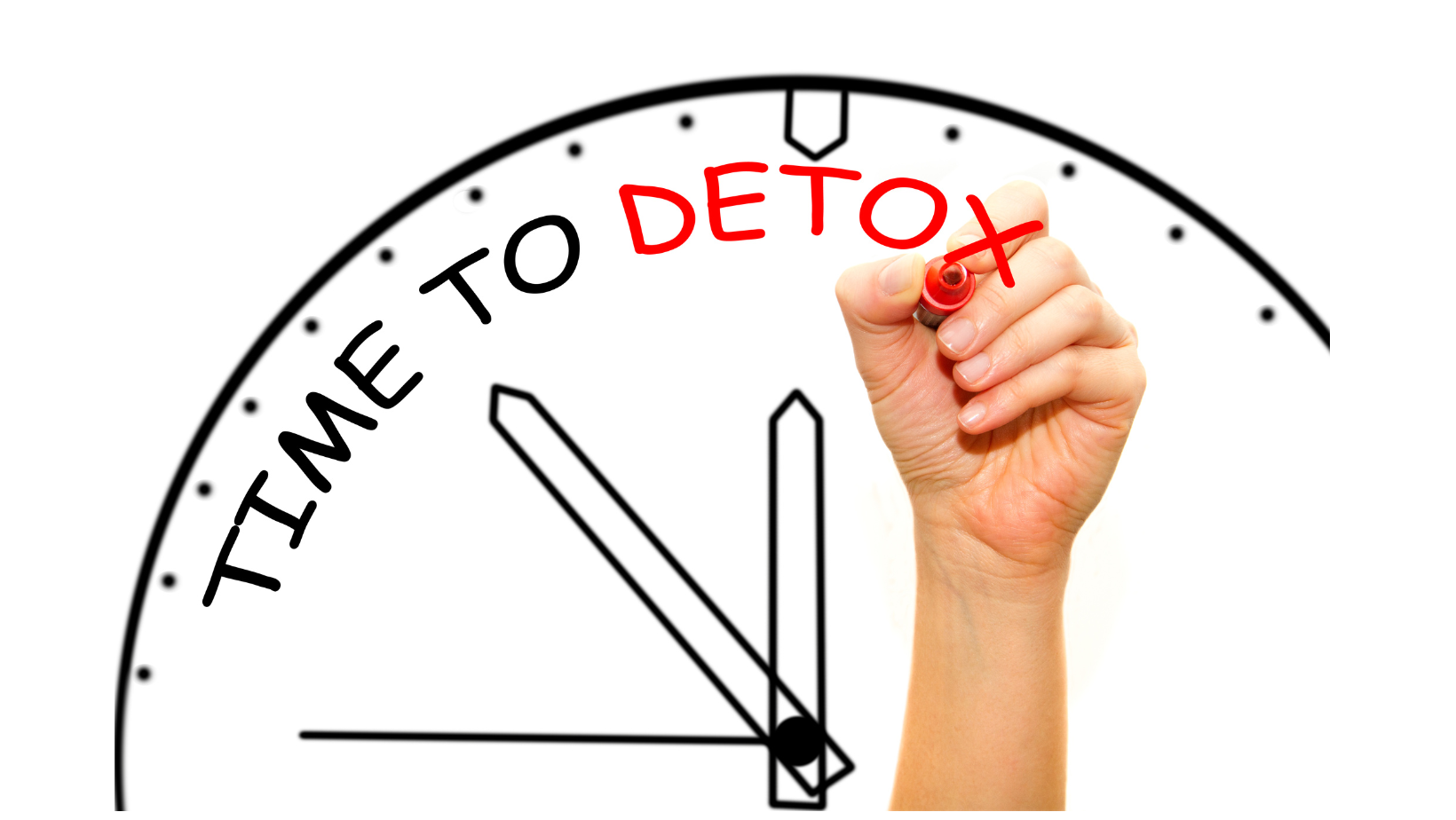
Anytime you’re cleansing your body; dietary, fasting, herbal, supplemental, or the kind of cleanse a lot of people experience with the EE System, your body is always detoxing to some degree. Keep in mind that the body is designed to detox all the time. Part of its job is to sort everything that comes in, directing the nutrients to the cells, while gathering all the waste to put out with the trash! Sometimes when we are overloaded with toxins from our food, water, air, and environment, toxins begin to accumulate in the body. When we become toxic, our bodily systems break down. It can lead to illness and deteriorating health. When we help our body clear itself of harmful substances, through a detox, it does it in two phases. The first phase of the detoxification process creates noxious molecules. The second phase neutralizes those molecules. If the second phase can’t keep up with the first phase, you can experience the Herxheimer reaction. The Herxheimer Reaction is only temporary, but you can feel worse before you feel better. You may experience headaches, muscle soreness or joint pain. There are things you can do to avoid the Herxheimer Effect and make your detox easier. These include taking a detox bath after an EES session and drinking plenty of water. The detox bath helps to pull the toxins and radiation out of your body. So you need to soak for at least 30-40 minutes. While drinking lots of clean water helps flush the toxins out. I often remind members that it’s best to have a river of water to wash away the dirt as opposed to a trickle or small stream. In our center we use another device called the Bemer, that helps increase blood flow which in turn helps remove toxins from the cells. We are constantly reminding people who use the Bemer to drink plenty of water because: “The Bemer moves blood not mud” – Deanna It has been my experience, and I’ve witnessed it in others, if you don’t give the body a river of water to wash away the dirt, your body will find other less convenient or less comfortable ways to get the poisons out. Example 1: A member who is recovering from addiction came to the center for an EES session. After her session I reminded her of the importance of taking the detox bath within 24 hours of her EE session. I called to check on her about a week later and see how she was doing. “I am a bit nervous to come back because I had diarrhea for 3 days after my last visit.” She said. I asked if she had taken a bath. “I got busy and didn’t have time, and then I forgot.” She didn’t take a bath. Example 2: A member who had had cancer treatments over the last year came for a session. She wanted to see if the EES might help her recover from all the treatments, the brain fog, and low energy. This member had another surgery coming up and wanted to come to help improve her surgery results. When I checked on her a week later she said, “I would love to come back because I really noticed a whole lot more mental clarity but I have such a terrible cold, congestion and phlegm I need to rest.” I asked if she had taken the bath with the salt mix we gave her? She confessed that she hadn’t had a chance to get in the bath. She didn’t take a bath. Example 3: I asked a returning member how she was doing and what she noticed since her last visit? She said, “I noticed the next day I felt really grouchy, short tempered and unpleasant. At first I couldn’t figure out what was wrong. Then I realized I just needed another bath. After I got out I was right as rain!” The bath can do more than just draw the toxins out of the body, it also helps improve PH. When you decrease the acid levels in your body, it can improve any acidic mood you might experience. Lastly, we have a staff member working with us and is in the energy most of the time. In the weeks following our installation I often asked, “Have you had a bath the last couple days?” (He wants me to mention I was working him like a borrowed mule! 🤣) He hadn’t taken a bath at all, though we were warned we really need to take a detox bath being in the energy all the time. The next day he got all congested, stuffy and started to get sick. I immediately gave him a bag of detox salt and sent him straight into the tub! He sat for his 40 minute bath, rinsed off, and after he was done I asked how he felt ….TA-DA! He immediately started feeling better and his congestion was lessened. He was better in a few days. The bath WORKS! Consider for a moment what it’s like when you decide to remodel a kitchen, bath, or even a whole house! It is going to get way messier before it gets better. I think it’s kind of like that when you’re upgrading your body, there are going to be some things that are dying off, some things are letting go, things that no longer serve us. If you have a whole rushing river to wash away waste, it’s so much easier to get clean than trying to stand under a shower that’s clogged and all it does is trickle. I think the lesson is that the body will find a way. I imagine the body saying, “we can do this the easy way, (imagine one of the mob’s goons punching his fist into his other hand) or the hard way. Which do you prefer?” Do the bath. Do two! It can only help. Taking a bath and drinking water is the easiest way!

Gratitude can have a profound effect on your EES experience. When members begin their session, right after singing bowls, I often suggest they count their blessings, and everything they’re grateful for. I believe there is great power available to us all in the zero point energy of the EESystem. By carefully considering what you want to create, being conscious of where your mind goes and what you give your attention to while in the sanctuary, it is possible to magnify your results. I attended a class with Dr. Sandra Rose Michael last fall. Shortly after that we found ourselves in Las Vegas at a 24 unit EES, I decided to commit myself fully to her instructions. I got into the system, got into gratitude and then got into rest. I sat down, meditated to get my mind quiet and then began to say ‘thank you’ for every single thing I could think of. I even said thank you for all the terrible people I’d experienced that ended up changing my life for the better! I am still human and can’t always be thankful for the struggles until I am all the way through them and can see the good in the end. I thought about all the people I love and replayed in my mind all the best moments I’d shared with them. I thanked every teacher/trainer/guru/mentor that had helped me in my journey. I let a smile take over my face as I sat there with my eyes closed, playing the very best memory movies one by one. Little by little my heart felt like it was expanding like inflating a balloon. I was partnering with the universal energy in that room at the highest level I was capable of. I was amazed at the miracles that followed: The very next day after my experiment with intentional gratitude in the 24 unit system we were approved for a loan for our own EESystem. We had been turned down repeatedly for 3 months! We also received a free flight in a jet to Vancouver the next day to see a sick friend. I also had a total healing of some sort of painful, fungal type, calloused infection in my fingers. I had been putting several different medicines on it for 3 weeks and nothing was working. When I looked at my fingers the next day I was dumbfounded. The people at HeartMath teach us to hold those thoughts of gratitude to bring our hearts into coherence. Heart/Brain coherence can create a ripple of love that goes out into the world just like dropping a pebble into the lake. What a powerful force of love we can become by allowing the EES field to multiply intentions, desires and gratitude and send it back multiplied. Come and try it for yourself! Then tell us your experience. We look forward to it.

David and I were away on a short vacation. Boy was it a welcome break from all the hectic flurry of getting all the bugs worked out of opening up our EESystem! While we were out for a short walk on the beach I saw this very big and very perfect rock for meditating! I turned and said to David enthusiastically, “Oh!! David!! This is the PERFECT meditation rock!! Look at it!! It’s nice and flat on top, it’s THE PERFECT MEDITATION ROCK!!” I continued to look at the other rocks to compare, “See, that one is too pointed, and that one has the cupped spot facing the wrong direction, none of those are good at all.” He looked at me a little unsure. I continued, “I need your help. I need you to slather me in sunscreen & get a towel to fold up and sit here to do my meditation. David sighed with relief and said, “Oh thank God, I thought for sure you wanted me to help you figure out how we could get it home!!” I burst out laughing, he knows me so well. The reason that was so funny is because he has watched me over the years as I am always looking for and picking up rocks to bring home with me. He also knows I have been looking for the perfect outdoor meditation perch! Always sizing up the perfect large stump or log, or a hanging chair from a tree, or a buffalo skin on the ground, some little comfortable spot for a cross legged posture that I can maintain for 15-30 minutes. The most amazing outcomes I have had with the EESystem have been when I started out my time with a good meditation and sitting quietly to count all my blessings and give thanks for every good thing that I could think of. Sometimes I even get happy and grateful about indoor plumbing!! Aren’t you so grateful that we don’t have to use an outhouse in the cold, in the dark, in the rain? Then, after I have meditated a bit, I do my best to rest and let my body do the work to heal itself with the support of the EES. As David and I walked back towards our resort I said with determination, “We will be taking home one perfect rock.” He simply replied, “can we at least agree on the size?”

In today’s fast-paced and demanding world, restful sleep is often neglected in favor of productivity and accomplishment (and sometimes games or entertainment!). However, prioritizing restful sleep is crucial for maintaining optimal health and well-being. Quality sleep not only allows our bodies to recover and recharge but also plays a vital role in various aspects of our physical and mental health. Let’s explore the profound impact of sleep and rest on our overall well-being. By understanding the importance of adequate rest, we can make informed choices to prioritize and optimize our sleep habits and watch for symptoms of inadequate rest. Importance of Sleep for Physical Health Sleep is a fundamental pillar of physical health. During sleep, our bodies undergo a series of restorative processes that support vital functions. Adequate sleep time and quality are essential for the regulation of hormones, metabolism, immune system function as well as the collection and removal of waste. Lack of sleep or poor sleep can disrupt these processes, leading to various health issues. Insufficient sleep has been linked to an increased risk of chronic conditions such as obesity, diabetes, cardiovascular diseases, and weakened immune function. Additionally, sleep deprivation can negatively impact our body’s ability to repair and regenerate tissues, leading to slower wound healing and impaired muscle recovery. Prioritizing restful sleep allows our bodies to effectively maintain and repair themselves, promoting optimal physical health. The Impact of Sleep on Mental and Emotional Well-being Sleep plays a critical role in supporting our mental and emotional well-being. Sufficient sleep promotes cognitive function, memory consolidation, and learning. Let’s put some emphasis on learning. In one sleep study the researchers were focused on sleeping and dreaming and how it affects learning. What they discovered was how effectively our brains will go to work while we are sleeping to solve problems and learn new skills. One of the best examples I have of that is from my own life. Every time I have ever played Tetris, I have found that very night my brain starts dreaming about all those blocks and how to more effectively and efficiently stack them for the win. Funniest thing, every friend I have talked to (who has also played Tetris) about my brain’s obsession to dream about and figure out Tetris, has immediately shot right back, “ME TOOO!!” Sleep also enhances our ability to concentrate, and make decisions. In contrast, sleep deprivation can impair cognitive performance, attention span, and memory recall. Moreover, quality sleep is closely intertwined with our emotional regulation and mental health. Chronic sleep disturbances have been linked to an increased risk of mood disorders such as anxiety and depression. Lack of sleep can also contribute to heightened emotional reactivity, irritability, and decreased resilience to stress. However, it’s not just sleep that is imperative, it’s the sleep that fosters dreaming. In one experiment researchers allowed volunteers to sleep but were woken up anytime they started dreaming. Within a couple of days some participants began exhibiting increased aggression, inability to perform as well on tasks they had previously mastered, and became less social. By prioritizing rest and ensuring adequate sleep and dreaming, we can better manage our emotions, support our mental health, improve our overall well-being, and improve our performance and problem solving. One of the most notable examples of enhanced creativity through sleep is Thomas Edison. When he was struggling to solve a problem with an invention he was working on he would sit in his chair with some marbles in his hand hovering over a metal bucket. As he would drift off to sleep his hand would slowly relax and with a “BANG, BANGEDY, BANG!!” The marbles would make such a clatter it would wake him back up. In that state between sleep and awake was where he could tap into his genius. Tips for Enhancing Sleep and Rest Now that we understand the importance of sleep and rest, let’s explore some practical tips to optimize our sleep habits: Stick to a consistent sleep schedule: Establish a regular sleep routine by going to bed and waking up at the same time each day, even on weekends. (I am no good at that! I love the luxury of sleeping in!) Create a sleep-friendly environment: Make your bedroom conducive to sleep by keeping it dark, (including taping over tiny green or blue indicator lights on devices) quiet, and at a comfortable temperature. Invest in a supportive mattress and pillow for optimal comfort. Practice relaxation techniques: Engage in activities that promote relaxation before bedtime, such as reading a book, taking a warm bath, or practicing deep breathing exercises. Limit exposure to electronic devices: The blue light emitted by screens can disrupt sleep patterns. Avoid using electronic devices close to bedtime or use blue light filters and night mode settings. You may find even better sleep by moving phones and connected tablets out of the room to reduce exposure to wifi and cell signals. Maintain a healthy lifestyle: Regular exercise, a balanced diet, and managing stress levels can positively impact sleep quality and duration. Limit caffeine, sugar and alcohol intake: These substances can interfere with sleep patterns. Avoid consuming caffeine anytime after noon, and be mindful of alcohol’s sedative effects, it doesn’t support restful sleep due to body chemistry and the sugars. Prioritize winding down: Establish a pre-sleep routine that includes calming activities such as meditation, gentle stretching, or journaling. Restful sleep is not a luxury but a vital component of overall health and well-being. By recognizing the profound impact of sleep and rest on our physical, mental, and emotional health, we can prioritize and optimize our sleep habits. Implementing simple lifestyle changes and creating a sleep-friendly environment can go a long way in ensuring we get the rest we need to thrive. Let us embrace the power of restful sleep and make it a priority in our lives for enhanced health and well-being. If none of those things work, try a BrainTap!! Call ReZENergice Sanctuary to get started on the path to better sleep. (307) 1111111
